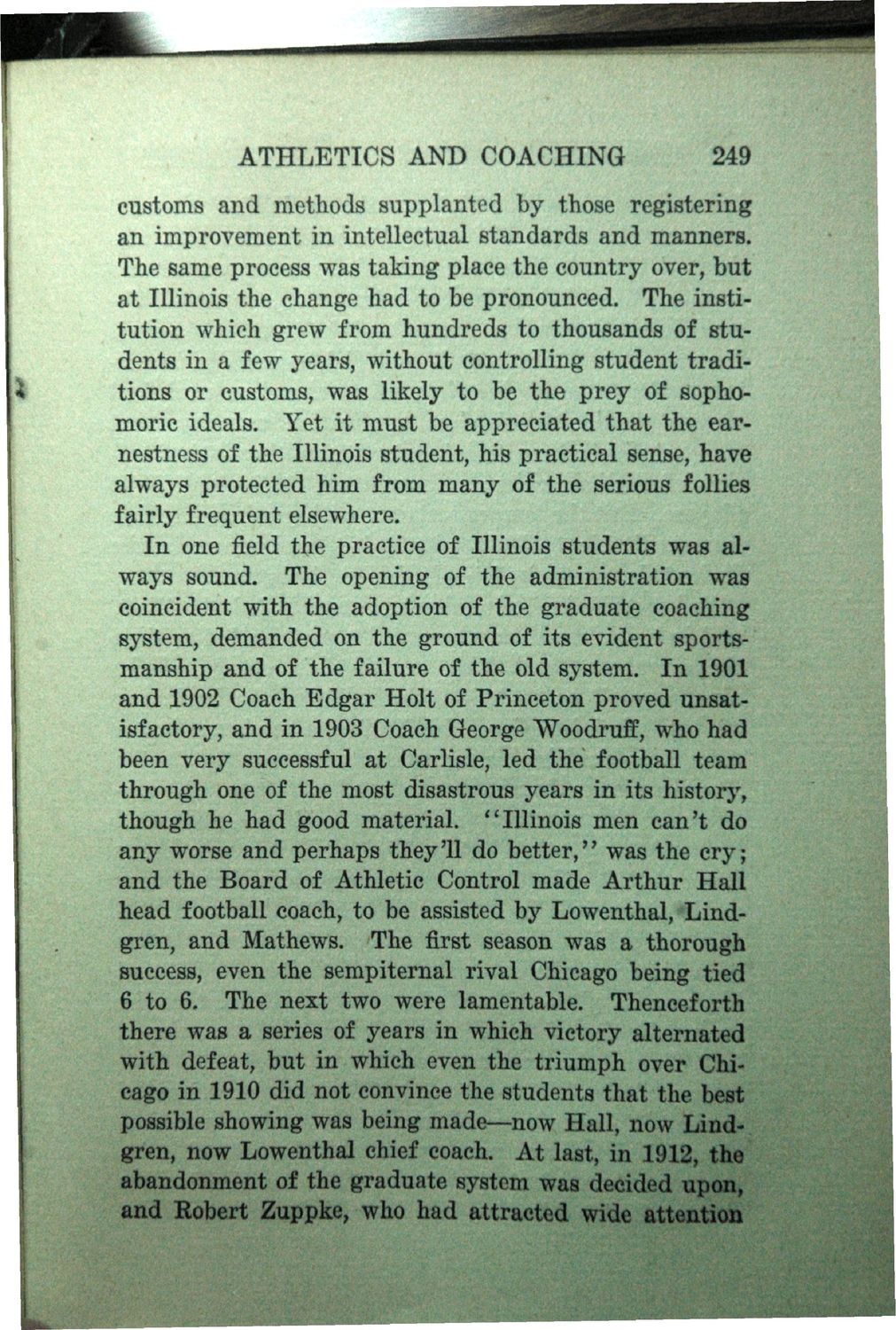| |
| |
Caption: Book - History of the University (Nevins)
This is a reduced-resolution page image for fast online browsing.

EXTRACTED TEXT FROM PAGE:
ATHLETICS AND COACHING 249 customs and methods supplanted by those registering an improvement in intellectual standards and manners. The same process was taking place the country over, but at Illinois the change had to be pronounced. The institution which grew from hundreds to thousands of students in a few years, without controlling student traditions or customs, was likely to be the prey of sophomoric ideals. Yet it must be appreciated that the earnestness of the Illinois student, his practical sense, have always protected him from many of the serious follies fairly frequent elsewhere. In one field the practice of Illinois students was always sound. The opening of the administration was coincident with the adoption of the graduate coaching system, demanded on the ground of its evident sportsmanship and of the failure of the old system. In 1901 and 1902 Coach Edgar Holt of Princeton proved unsatisfactory, and in 1903 Coach George Woodruff, who had been very successful at Carlisle, led the football team through one of the most disastrous years in its history, though he had good material. "Illinois men can't do any worse and perhaps they'll do better," was the cry; and the Board of Athletic Control made Arthur Hall head football coach, to be assisted by Lowenthal, *Lindgren, and Mathews^i'The first season was a thorough success, even the sempiternal rival Chicago being tied 6 to 6. The next two were lamentable. Thenceforth there was a series of years in which victory alternated with defeat, but in which even the triumph over Chicago in 1910 did not convince the students that the best possible showing was being made—now Hall, K M H M gren, now Lowenthal chief coach. At last, in-;i||l2, the abandonment of the graduate system was decide*! upon, and Robert Zuppke, who had attracted wide attention
| |